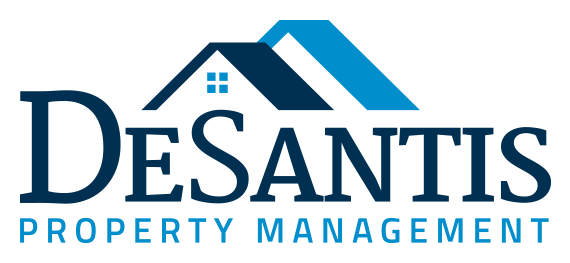Renting Out Your Home in Pittsburgh: Everything You Should Consider

Thinking of renting out your Pittsburgh home? If you are, it can be one of the best decisions you’ll ever make. If you do it well, being a landlord can help provide you with the financial freedom that you want with the steady income it can provide.
Being a landlord, however, isn’t all about cashing rent checks at the end of every month. In today’s article, we’ll provide you with tips on how to successfully rent out your house in Pittsburgh.
1. Acquire some Basic Real Estate Skills
Running a rental business requires one to have some basic skills. Having a basic understanding of real estate and what’s involved in being a landlord will be vital. Some of the basic skills you’ll want to acquire include:
- Knowing how to market a rental listing
- Screening tenants and knowing how to select the best from a prospective tenant pool
- Having knowledge of Pennsylvania landlord-tenant laws
- Having know of Pennsylvania security deposit law
- Knowing how to maintain a rental unit
- Knowing how to determine the optimum rental rate
Once you have mastered these skills and, ideally, have had hands-on experience, then you’ll be on your way to self-managing your rental property. Otherwise, hiring a professional company like De Santis Property Management may be the best option for you.

2. Understand the Responsibilities that Come with Being a Landlord
Landlords have many responsibilities. How well you perform these responsibilities is what can make all the difference in your rental income and overall renter experience. Here are just some of the things you’ll be responsible for as a landlord:
- Providing tenants with a home that meets the minimum safety, health, and structural codes
- Maintaining the peace and quiet
- Providing all the amenities promised in the lease
- Responding to maintenance issues in a timely manner
- Treating tenants with respect and fairness in accordance with the Fair Housing Act
- Notifying tenants before making any changes to the terms of the lease agreement
- Providing tenants with reasonable notice prior to entry – usually, a 24 hours advance notice
3. Draft a Solid and Legal Lease Agreement
Having a lease agreement helps protect both landlords and tenants. Creating a solid lease will help you avoid many issues and rent conflicts with your tenant that can occur during the tenancy.
Be clear on your expectations about rent-related terms. For example note how much the dollar amount is when it’s due if there are late fees, if there’s a grace period, and more.
You’ll also want to share important rent policies with your tenant. For instance, what’s your policy on pets? If you accept them, let them know about any restrictions they must abide by such as the number of pets allowed.

Once you’re done with the drafting process, have a professional examine the document to ensure it abides with the state’s leasing and rent laws. Lastly, before prospective tenants can sign the lease, make sure to go through it together with them so that they know what they’re signing and agreeing to.
4. Make All Necessary Repairs
Would you want to rent a home that’s in a dire state of disrepair? Of course not! No one would, especially a quality tenant who you should be targeting for maximum ROI.
So, before listing your unit, go around and make sure everything is functioning normally. Make sure all your appliances are working as they should make any necessary repairs to ensure the space is habitable and clean the space.
Not only will this ensure that you’re meeting your duties as a landlord, but it will also set a precedent for the tenant moving in, letting them what the unit should look like throughout their stay.
5. Determine the Optimum Rental Rate
How much to charge your tenants isn’t determined through guesswork. It’s something that you should determine using specific criteria. The right rent price should be attractive to potential tenants. It’s also one that will ensure maximum return on investment.
As a general rule of thumb, use the 1% Rule as a guiding principle. The rule states that the rent collected on an investment should be equal to or greater than 1% of the purchase price.

So, if you bought your Pittsburgh rental properties at $300,000, then the monthly rent amount should be at least $3,000 in order for it to be worthwhile.
6. Familiarize Yourself with Pennsylvania Landlord-tenant Laws
Among the many responsibilities you’ll have as a Pittsburgh landlord are legal ones. So, to avoid any legal trouble, read and make sense of the landlord tenant laws in Pennsylvania.
One legal responsibility that will fall onto your shoulders is maintenance. It’s the landlord’s responsibility to ensure their rental property meets the minimum habitability standards. So, once a tenant notifies you of a maintenance issue, you’ll need to act fast to fix the issue.
Another responsibility you have is treating your tenant with respect and fairness regardless of some protected classes. This is a requirement under the Fair Housing Act. Protected classes include race, color, religion, sex, nationality, and familial status.
Other responsibilities include:
- Abiding by the state’s security deposit rules
- Following the Pennsylvania legal eviction process
- Abiding by the Implied Covenant of Quiet Enjoyment
7. Hire an Experienced Property Management Company
If you have found the prospect of self-managing a rental property daunting, then hiring a company that will manage the unit for you may be the best solution for you.
A good company will help you in all aspects of management such as rent collection. From filling vacancies and screening prospects to collecting rental payments, you’ll have nothing to worry about.
Bottom Line
When renting out your house, you need to ensure that you fully understand what you undertaking. You have to prepare your rental property for long-term tenants, learn and stay up-to-date on rental laws and manage day-to-day issues that arise during the tenancy.
If you need assistance, DeSantis Property Management can help you maximize the value of your real estate investment. We’re a full-service company that can provide you with all the help you need to run your property successfully. Get in touch with us today!
Disclaimer: This piece is not a substitute for professional legal advice. Please contact a licensed attorney if you have any legal questions or need help.
